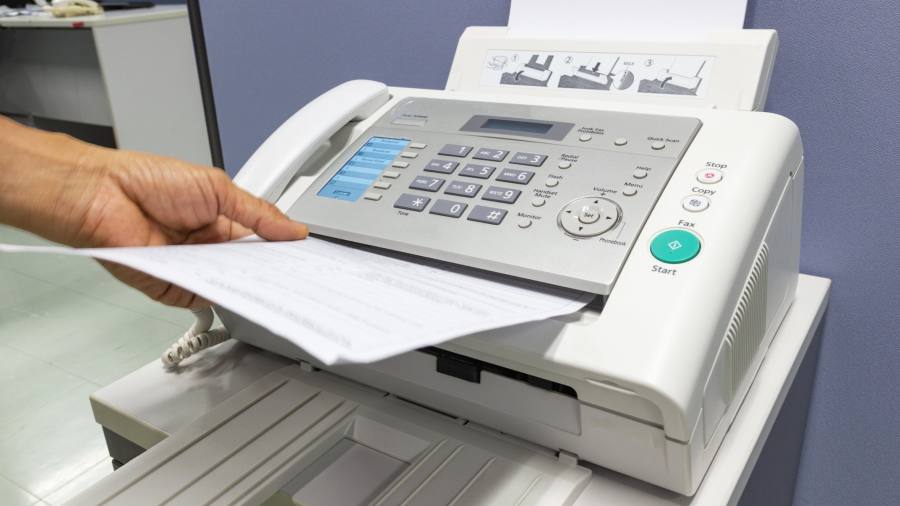
The British communications regulator has sounded the death knell of the fax machine, just over 30 years after it revolutionised office life.
Ofcom said on Tuesday it had started the process to scrap legislation compelling BT, the former state-owned monopoly, to provide dedicated landlines for the devices at affordable prices.
The facsimile machine, first commercialised by Xerox in 1964, became a ubiquitous feature of offices around the world from the late 1980s but has since been displaced by a combination of email, scanners, cloud and instant messaging services.
The old technology works by processing the contents of a fixed graphic image, transmitting it through the landline via audio-frequency tones, which are then received by another fax machine, interpreted and reconstructed into a printed replica of the original.
“As digital technology and broadband services have developed, the fax machine has been overtaken by email and document-sharing software that offer the same or better functionality,” Ofcom said in a statement. “We’re now consulting on changes to telecoms rules that could see the fax machine become a thing of the past.”
Though the fax has been rendered obsolete in most work environments, it is still used in the healthcare sector, which has been slow to digitise.
Software or cloud-based versions of the fax are still commonly used by financial institutions, lawyers, estate and football agents as it is viewed as an efficient and safe way of transferring private data and because faxes are deemed legally valid documents. But these services work over the internet so do not require dedicated landlines.
The NHS has been a holdout in the use of fax machines. Four years ago, then health secretary Matt Hancock announced he was banning the “archaic” devices from 2020 after reports in the media revealed that the health service in England was still using more than 9,000 machines. However, earlier this year, the opposition Labour party said the NHS was still using 800.
A freedom of information request in 2020 by eFax, a company that provides digital fax services, found that there were almost 1,000 fax machines still in use across local councils, police forces, universities and fire services.
The legislation, known as the universal service obligation (USO), compelling BT to provide dedicated fax services dates back to the privatisation of the former state monopoly in 1984. This required the company to maintain a full national telecoms service including to less-profitable rural areas. It was later updated to include the provision of fax services.
The Ofcom consultation comes after the government last month removed fax services from USO.
BT also has to provide public call boxes as part of the universal service obligations, which have become increasingly obsolete in the age of the mobile phone. Ofcom decided this year that several thousand boxes in rural areas, or where there is still significant demand, should be protected from closure.
One of the most famous faxes in history was basketball player Michael Jordan’s transmission in 1995 that announced his return to the game after 17 months in retirement with two words: “I’m back.”
BT said in a statement: “There is now such limited demand for fax services, which have been superseded by newer forms of communications, that we support the recent changes which remove our obligation to provide a fax service under the USO.”
Additional reporting by Rafe Uddin